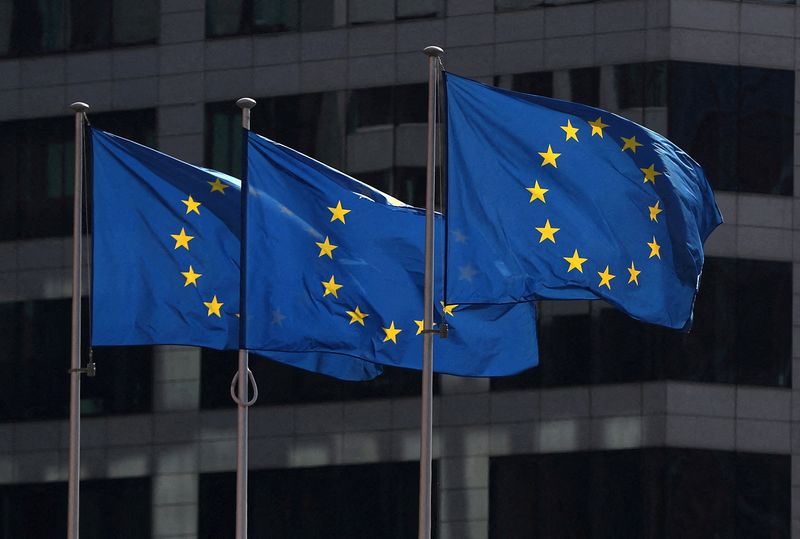By Hannah Lang
WASHINGTON (Reuters) – The dollar climbed on Tuesday while the euro faltered after European Central Bank (ECB) President Christine Lagarde offered no fresh insight into the central bank’s policy outlook.
The ECB is widely expected to follow its global peers by raising interest rates in July to try to check soaring inflation though economists are divided on the magnitude of any rate hike.
The euro held below $1.06 after Lagarde said the central bank would move gradually but with the option to act decisively on any deterioration in medium-term inflation, especially if there were signs of a de-anchoring of inflation expectations.
The euro was last down 0.6% to $1.052.
“The ECB is in a tough spot because it is expected to see more significant slowing than a lot of its peers,” said Mazen Issa, senior FX strategist at TD Securities in New York.
“There’s an inherent limitation to how much the ECB is going to be able to do, particularly in the relative sense to, say, the Fed,” Issa added, pointing to Russia’s invasion of Ukraine and the fragmentation risk in the euro zone.
Money markets are pricing in about 238 basis points (bps) of cumulative rate hikes by mid-2023 compared to the around 280 bps they anticipated two weeks ago.
The U.S. dollar index, which struck a two-decade high of 105.79 this month, was last up 0.51% at 104.490.
“If there was an overall theme, it’s still that the dollar is stronger during this period of uncertainty and I expect the uncertainty to continue for at least the summer until we get a better idea of what inflation looks like,” said Marvin Loh, senior global macro strategist at State Street (NYSE:STT).
New York Federal Reserve Bank President John Williams on Tuesday in an interview on CNBC said interest rates “definitely” needed to be between 3% and 3.5% by the end of this year, but that he did not anticipate a U.S. recession.
Elsewhere, the offshore Chinese yuan moved higher after China reduced COVID-19 pandemic-related quarantine for international travelers.



